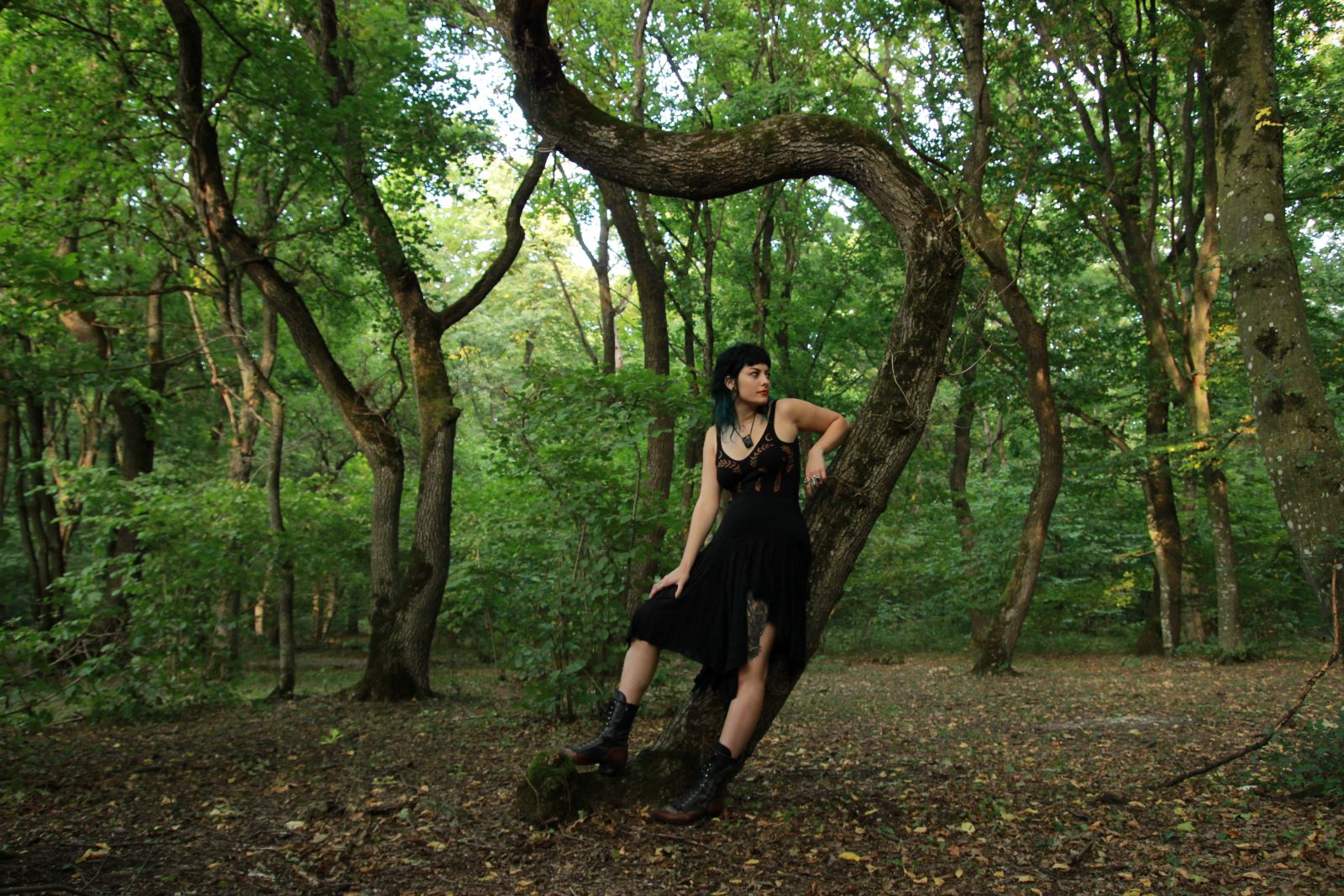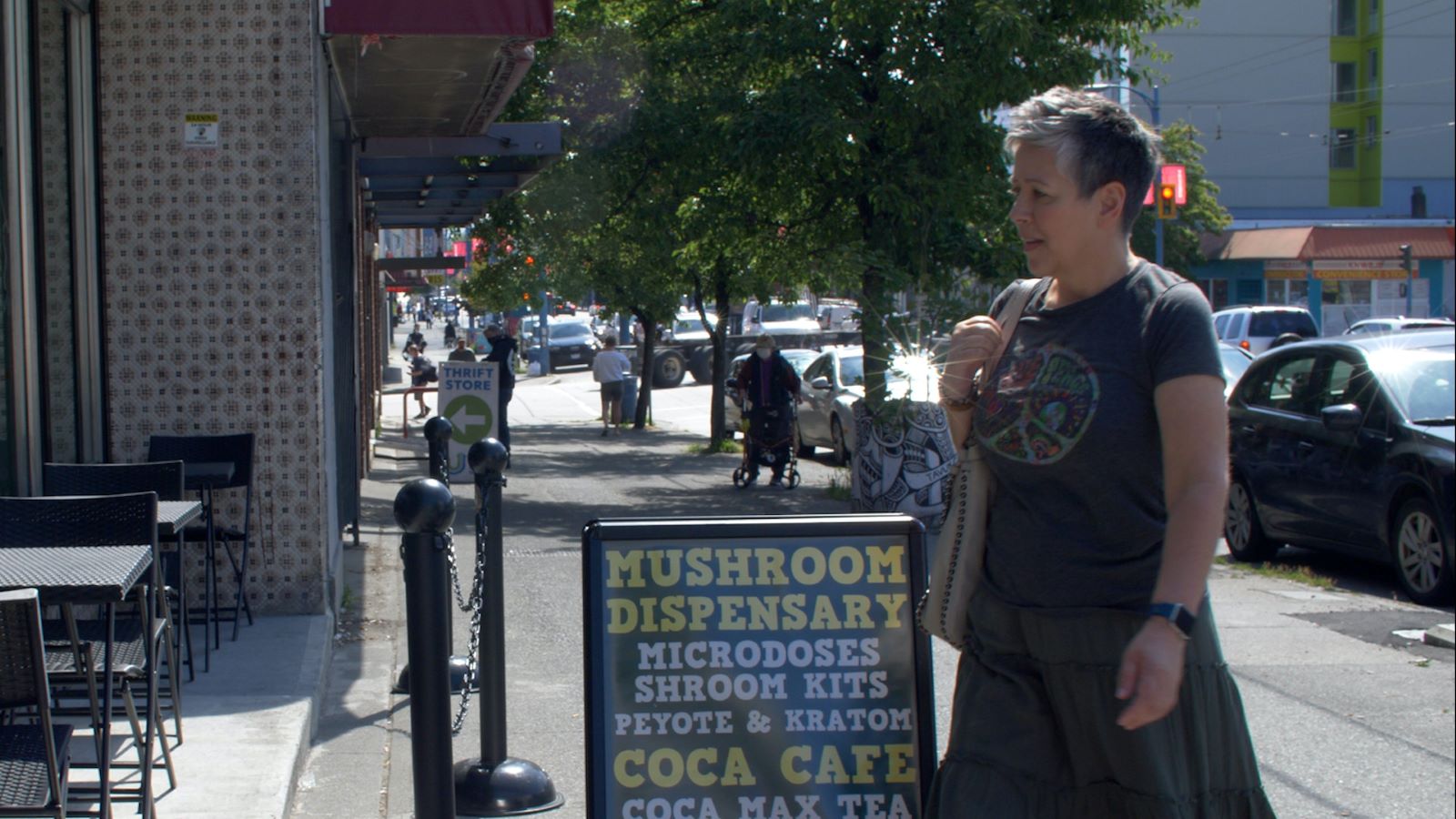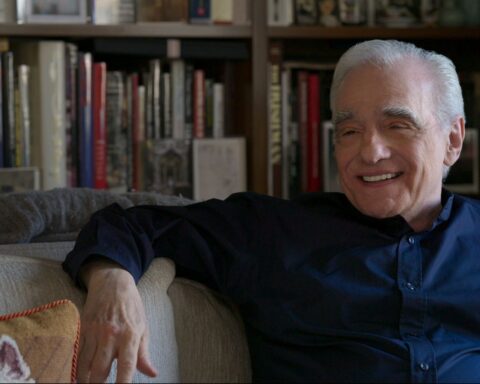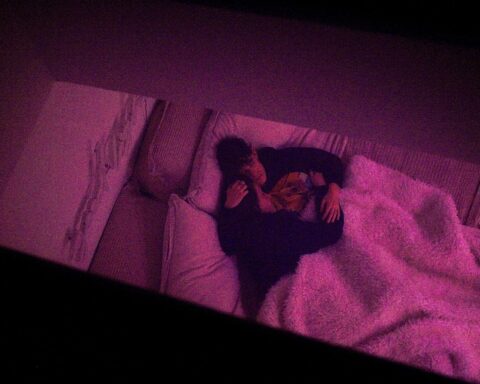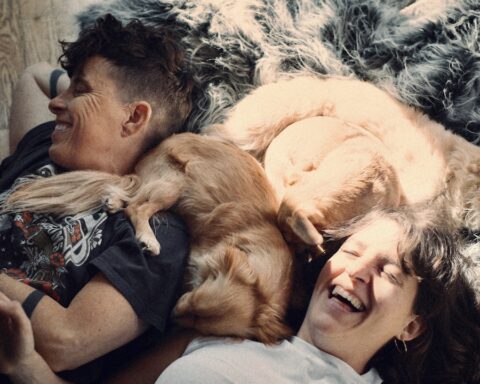The idea of history repeating itself becomes more and more a truism as history rolls on. Improvements to overall health and standards of living can be seen from generation to generation, but at our core, human beings still are prone to fears and prejudices that never seem to be conquered.
When Canadian filmmakers Sean Horlor and Steve J. Adams (Someone Like Me) began researching their latest film, Satan Wants You, on the origins of the so-called Satanic Panic of the ’80s and ’90s, they found clear (and disturbing) parallels between their subject and contemporary events.
“Structurally, when we first approached this, we were looking at bookending the film with Pizzagate and QAnon,” Horlor tells POV over Zoom from the directors’ home in Vancouver. “[We were] actually going to speak to the pizzeria in Washington, DC [Comet Ping Pong] and have that as a more contemporary bookend.”

Instead, Horlor and Adams found their narrative closer to home when they began to peel back the layers of Michelle Smith’s infamous story as she had related it to Lawrence Pazder. The filmmakers realised that they had uncovered a true-crime horror story.
In the ’80s and ’90s, North America was in the throes of a hysterical phenomenon that saw parents utterly convinced Satanic cults were targeting their children. Wild allegations of child abuse (physical, sexual, and emotional) against childcare workers and grade school teachers were made, some resulting in actual convictions and incarcerations that would later be found unjustified and overturned. Seemingly at the heart of this extraordinary panic was a memoir out of Victoria, B.C. by Michelle Smith.
Michelle Remembers claimed to uncover the repressed childhood trauma of Smith, aided by Pazder, her psychotherapist. Through multiple therapy sessions, Pazder and Smith claimed to have revealed a time in Smith’s life when she was given to a Satanic cult by her mother and subjected to horrific acts of violence and torture. While the book has since been discredited, at the time of publication Smith’s story caught the imagination of the public and made celebrities of her and Pazder.
Satan Wants You illustrates the absolute death grip Smith and Pazder’s story had at the time. Daytime talk shows across America from Oprah and Maury to Sally Jessy Raphael and Geraldo Rivera were talking about how American children were under threat by Satanic cultists. It seemed that everyone with an iota of influence on the cultural zeitgeist was talking about Satan.
“When terrible things happen in people’s lives, they try to find an explanation for it,” Adams offers as a reason for people’s willingness to succumb to Smith and Pazder’s claims. “It’s easier to blame this make-believe element, rather than blaming themselves or a neighbour or a family member.”
“It’s easier to blame Satan!” Horlor adds. “We’ve seen it again [recently] with Lil Nas X and Balenciaga and the Grammys performance this year. ‘Wow, those queer people are Satanists, because they’re different than me.’ And that’s the easiest way—[just find a] scapegoat, right?”
As a result of Smith, Pazder, and those who gave a platform to their story, the lives of many were ruined. Satan Wants You shares the story of a school teacher who served jail time for unwarranted and deplorable claims against her, all stemming from public outrage built on half-truths, misrepresentation and outright lies.
Horlor and Adams’ film ends with clips of conspiracy theory enthusiast and radio shock jock Alex Jones spewing his unfounded vitriol, uncensored, across the Internet. His appearance compounds Horlor’s assertion that while the Satanic Panic may officially be over, our present-day society isn’t done listening to tall tales from those who speak the loudest.
“We’re obsessed with memory and storytelling, with what people tell themselves in order to get through another day,” Adams says. “It’s something Sean and I speak about [a lot] to just try and understand it.”
Although Adams is speaking of those who launched hateful campaigns against those different from themselves, his sentiments can be applied to a quieter story within Satan Wants You. As one can imagine, those who worship outside of Abrahamic norms find themselves on the receiving end of much discrimination and prejudice. In an odd twist of irony, there’s an argument to be made that both the members of alternative spiritual groups and those who irrationally fear them belong to their respective groups for the same reason: a desire to reconcile the world around them.
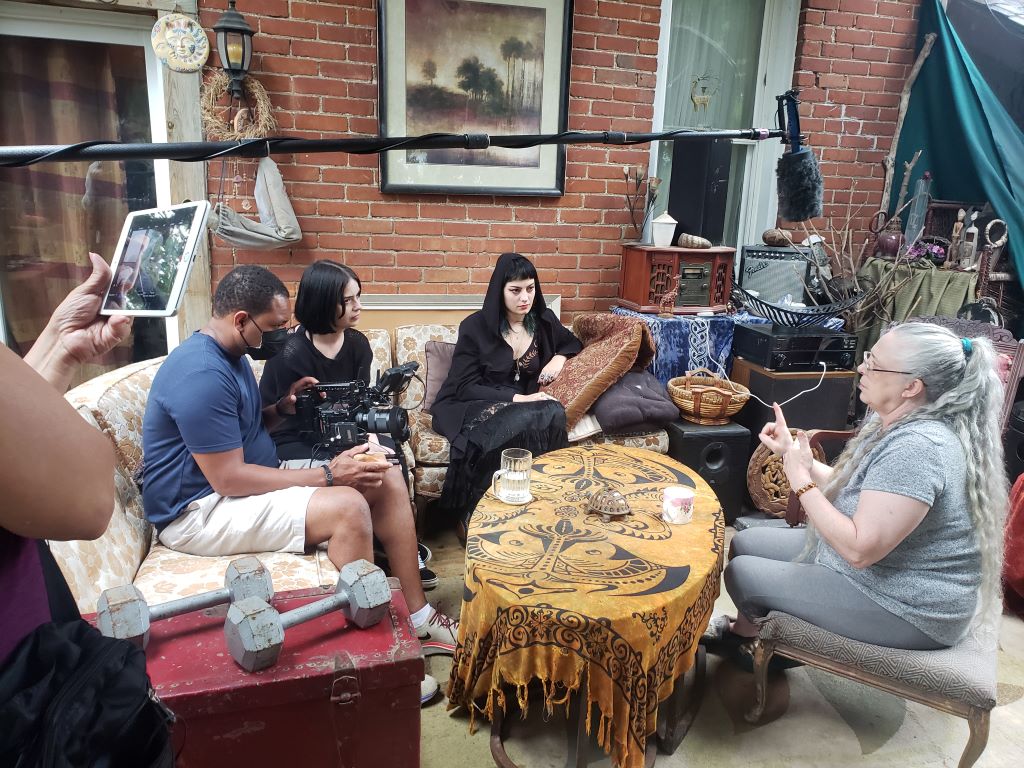
| Photo by Stephanie de Bem / Storyline Entertainment
“I think it’s about moving away from the news, the patriarchy, the war that we keep hearing about,” director Rama Rau (The League of Exotique Dancers) offers from Toronto. Her latest documentary, Coven, an exploration of young women on a journey to becoming Wiccan and understanding their spirituality, can be seen as a companion piece to Satan Wants You that shines a positive light on these “alternative religions.”
“It is about how you cope with the daily onslaught of bad news,” Rau continues. “You go into your love of nature and into yourself. And hopefully you find some sort of peace there.”
As Rau developed Coven, she was struck by the prevalence of Wicca among the young women of today. “My niece in New York [is] 24 years old. She and her friends have formed a coven of four. They buy tarot cards, talk to each other and burn an incense stick. They think they’re witches,” says Rau. “[If] you go to Dundas Square [in Toronto], and ask any woman between 20 and 30 [years old], I guarantee you 60 to 80% of them will say, ‘I identify as a Wiccan or as a witch.’ It is very much a thing now.”

Of course, Wicca and witchcraft aren’t new. These ideas and the (mostly) women who adhere to them date back centuries, with a rich history that spans the world. But undoubtedly there has been a recent resurgence of this form of spirituality, as Coven illustrates.
“Our century started with individuality and then we lost it. Women are still bound to man-made rules that decide what our bodies can do [and] I think younger women are reacting to that and finding some sort of bond with other women over these things,” Rau ruminates. “It’s really a lot to do with environmentalism and the Earth dying [as well]. I think our younger generation is really waking up to that.”
After doing a deep-dive into what can happen when one voice strangles the public conscience, Horlor and Adams, too, see the importance of how the next generation fights against what’s wrong in the way that they have. “I hope that’s the main takeaway from this film,” says Horlor. “People only get away with conspiracies when you let them. [There’s] a collective responsibility to stand up and say, ‘this is false,’ and keep saying it over and over again until something changes.”
Adams is quick to remind, however, that patience is a virtue in this fight: “These things take time. People think that change needs to happen overnight, and it just doesn’t happen that way. Change can happen, but…it is going to take a longer period of time.”
Where Satan Wants You details the missteps of generations raised on television, Coven presents an optimistic tonic that the generation raised on TikTok may have more to give than meets the eye. While history will continue to repeat itself to some degree, perhaps older generations shouldn’t be so quick to dismiss the younger.
“Patterns are going to be repeated. And yes, humanity is never going to come out of its self-perpetuating cycle of birth and death,” affirms Rau. “But hopefully every generation will learn a little bit from the past. That’s all we can hope for.”




